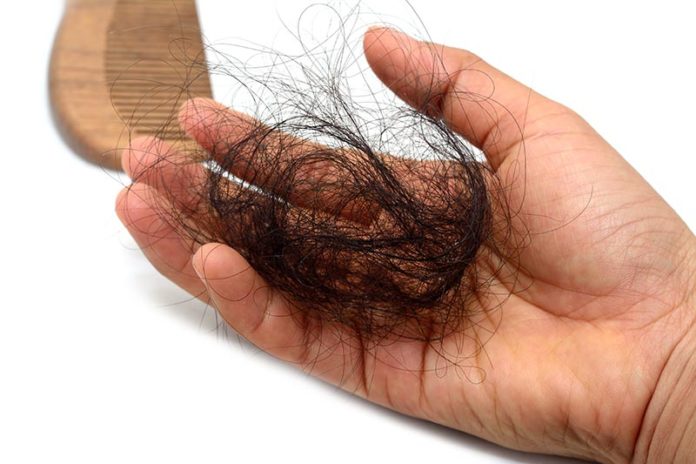A longstanding sufferer of hair loss experienced significant hair regrowth while being treated for eczema
A 13-year-old patient, who has alopecia totalis – a total lack of scalp hair – along with eczema, experienced significant hair regrowth while being treated with dupilumab. Dupilumab is a FDA approved drug for the treatment of moderate to severe eczema, also called atopic dermatitis.
Treatment outcomes were published in JAMA Dermatology.
“We were quite surprised since this patient hadn’t grown scalp hair since the age of 2, and other treatments that can help with hair loss did not in her case,” said Maryanne Makredes Senna, MD, of the MGH Department of Dermatology, senior author of the JAMA Dermatology report. “As far as we know, this is the first report of hair regrowth with dupilumab in a patient with any degree of alopecia areata.”
After six weeks of treatment, which led to significant improvement in eczema symptoms, she also noticed that fine light hairs called vellus hairs were appearing on her scalp
In addition to longstanding alopecia, this patient had experienced extensive, treatment-resistant eczema since the age of 7 months. Treatment with prednisone and methotrexate, medications that can suppress the overactive immune system, led to limited improvement in the patient’s eczema but no hair regrowth and was therefore discontinued.
In July 2017 she began to be treated with weekly injections of dupilumab. After six weeks of treatment, which led to significant improvement in eczema symptoms, she also noticed that fine light hairs called vellus hairs were appearing on her scalp.
After seven months of dupilumab treatment, the patient had grown a significant amount of the pigmented hair that typically grows on the scalp. Because of a change in her insurance coverage, she had to discontinue dupilumab for a two-month period, during which she noticed shedding of the recently regrown hair. But after she could resume treatment in April 2018, the hair growth resumed and has continued.
Dupilumab’s mechanism of targeting a key immune system pathway known to be overactive in eczema could explain its action against alopecia, explained Senna.
“Right now, it’s hard to know whether dupilumab could induce hair growth in other alopecia patients, but I suspect it may be helpful in patients with extensive active eczema and active alopecia areata,” she added.
Senna is the principal investigator of the Hair Academic Innovative Research (HAIR) clinical research unit at MGH and an instructor in Dermatology at Harvard Medical School.


